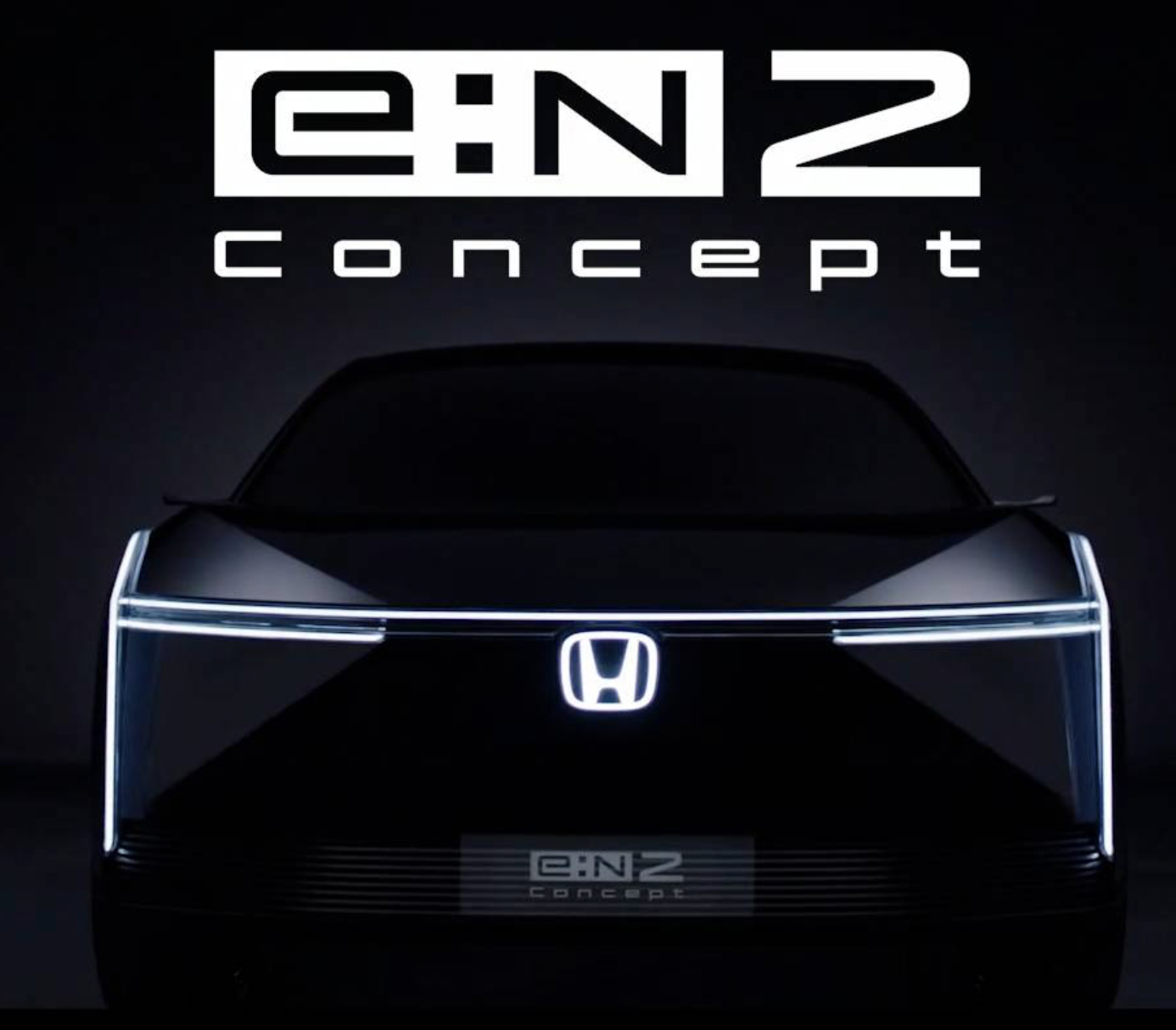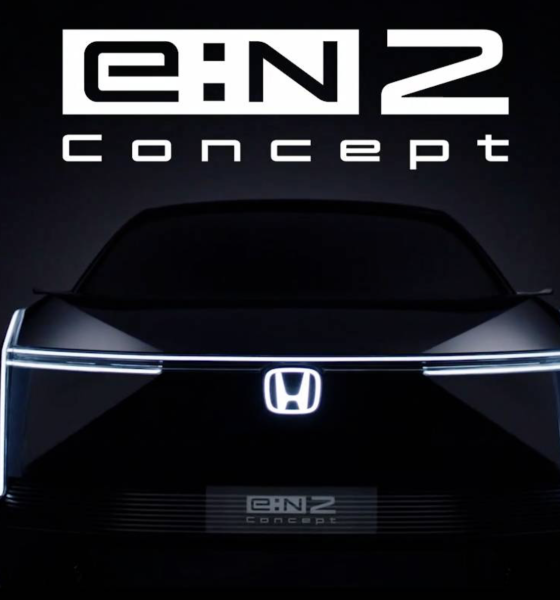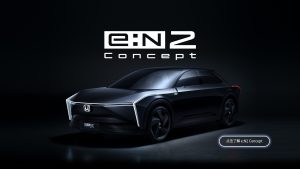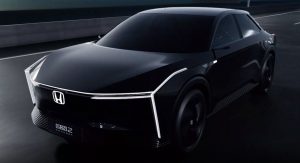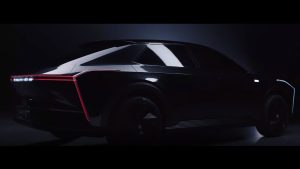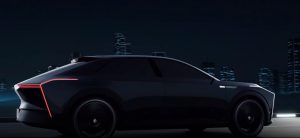Honda unveiled its new e:N2 concept in China today, a vehicle that highlights the brand’s electric future.
In a comment to Reuters regarding Honda’s reveal, Honda CEO Toshihiro Mibe stated, “Honda is transforming itself into an electric brand in China with a series of unique and diverse electric mobility products that only Honda can offer.” And nothing exemplifies this radical shift better than the company’s unveiled concept vehicle, the Honda e:N2.
Honda began to sell electric vehicles in China earlier this year, and shortly after that, the company started the “e:N Design Studio.” This new design studio has, since then, created and unveiled four EV concept vehicles (including the one released today), each of which aims to radically shift Honda’s design language and engineering focus to electric vehicles.

Thus far, the design group has created the e:N SUV, e:N Coupe, and the e:N GT. And today, the group unveiled the e:N 2, an iteration of the e:N platform, closely resembling the e:N GT/Coupe.
Honda’s Chinese website shows off the new concept vehicle’s design yet lacks concrete technical information. Other than “e:N OS” software and “Architecture F” highlighted in the video, it is clear that the focus is form over function.
Ideally, these e:N concept vehicles are a glimpse of what is to come from the future “electric brand,” and there are a couple of consistent aspects. Foremost is the similarity of the different variations of the e:N platform (SUV, Coupe, and GT), the design language essentially mirroring each other with only slight dimensional changes between them. Angularity is another shared trait, especially at the corners of the vehicle, where the headlights and tail lights accentuate the aggressive edge. Finally, the Tesla Cybertruck-esque simplicity on many of the body panels is a shared trait and a significant departure from the more complex body design most vehicles have today.
Despite claims of these concept vehicles defining future design, Honda’s current lineup of EVs in China looks nothing like the e:N concepts, having more in common with the U.S.-based Honda HRV. However, this may change as the brand hopes to transition to EVs in the Chinese market.
What remains unclear is when Honda will commit to growing these more affordable EV offerings outside China. Particularly if Honda plans to claim that it is an electric vehicle manufacturer, it would be quite a miscalculation to leave out significant markets such as Europe, North America, or even Honda’s home market of Japan.
What do you think of the article? Do you have any comments, questions, or concerns? Shoot me an email at william@teslarati.com. You can also reach me on Twitter @WilliamWritin. If you have news tips, email us at tips@teslarati.com!

Cybertruck
Tesla Cybertruck’s newest trim will undergo massive change in ten days, Musk says
It appears as if the new All-Wheel-Drive trim of Cybertruck won’t be around for too long, however. Elon Musk revealed this morning that it will be around “only for the next 10 days.”
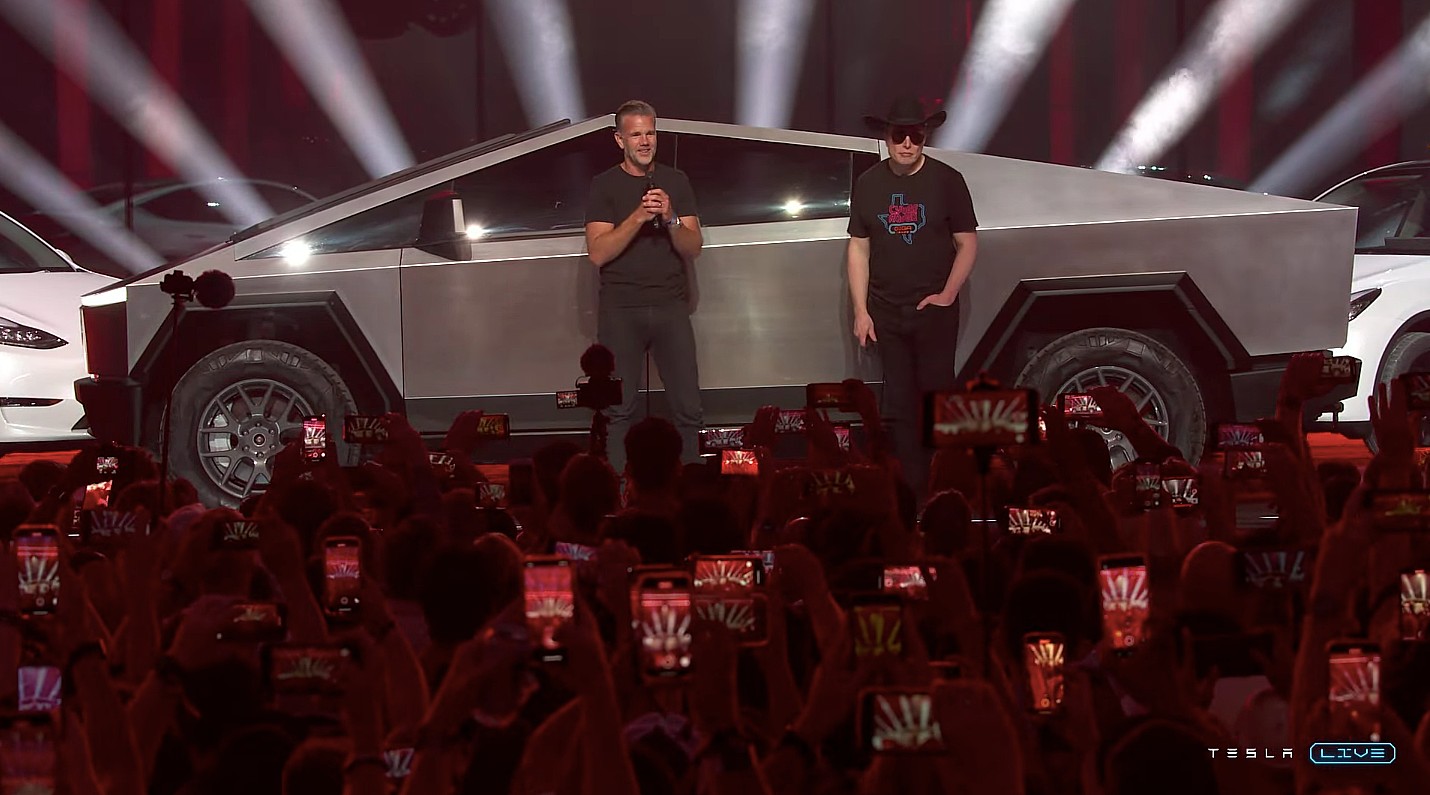
Tesla’s new Cybertruck trim has already gotten the axe from CEO Elon Musk, who said the All-Wheel-Drive configuration of the all-electric pickup will only be available “for the next ten days.”
Musk could mean the price, which is $59,990, or the availability of the trim altogether.
Last night, Tesla launched the All-Wheel-Drive configuration of the Cybertruck, a pickup that comes in at less than $60,000 and features a competitive range and features that are not far off from the offerings of the premium trim.
Tesla launches new Cybertruck trim with more features than ever for a low price
It was a nice surprise from Tesla, considering that last year, it offered a Rear-Wheel-Drive trim of the Cybertruck that only lasted a few months. It had extremely underwhelming demand because it was only $10,000 cheaper than the next trim level up, and it was missing a significant number of premium features.
Simply put, it was not worth the money. Tesla killed the RWD Cybertruck just a few months after offering it.
With the news that Tesla was offering this All-Wheel-Drive configuration of the Cybertruck, many fans and consumers were encouraged. The Cybertruck has been an underwhelming seller, and this seemed to be a lot of truck for the price when looking at its features:
- Dual Motor AWD w/ est. 325 mi of range
- Powered tonneau cover
- Bed outlets (2x 120V + 1x 240V) & Powershare capability
- Coil springs w/ adaptive damping
- Heated first-row seats w/ textile material that is easy to clean
- Steer-by-wire & Four Wheel Steering
- 6’ x 4’ composite bed
- Towing capacity of up to 7,500 lbs
- Powered frunk
It appears as if this trim of Cybertruck won’t be around for too long, however. Musk revealed this morning that it will be around “only for the next 10 days.”
Only for the next 10 days https://t.co/82JnvZQGh2
— Elon Musk (@elonmusk) February 20, 2026
Musk could mean the price of the truck and not necessarily the ability to order it. However, most are taking it as a cancellation.
If it is, in fact, a short-term availability decision, it is baffling, especially as Tesla fans and analysts claim that metrics like quarterly deliveries are no longer important. This seems like a way to boost sales short-term, and if so many people are encouraged about this offering, why would it be kept around for such a short period of time?
Some are even considering the potential that Tesla axes the Cybertruck program as a whole. Although Musk said during the recent Q4 Earnings Call that Cybertruck would still be produced, the end of the Model S and Model X programs indicates Tesla might be prepared to do away with any low-volume vehicles that do not contribute to the company’s future visions of autonomy.
The decision to axe the car just ten days after making it available seems like a true head-scratcher.
Elon Musk
Elon Musk’s Neuralink sparks BCI race in China
One of the most prominent is NeuroXess, which launched in 2021 and is already testing implants in patients.
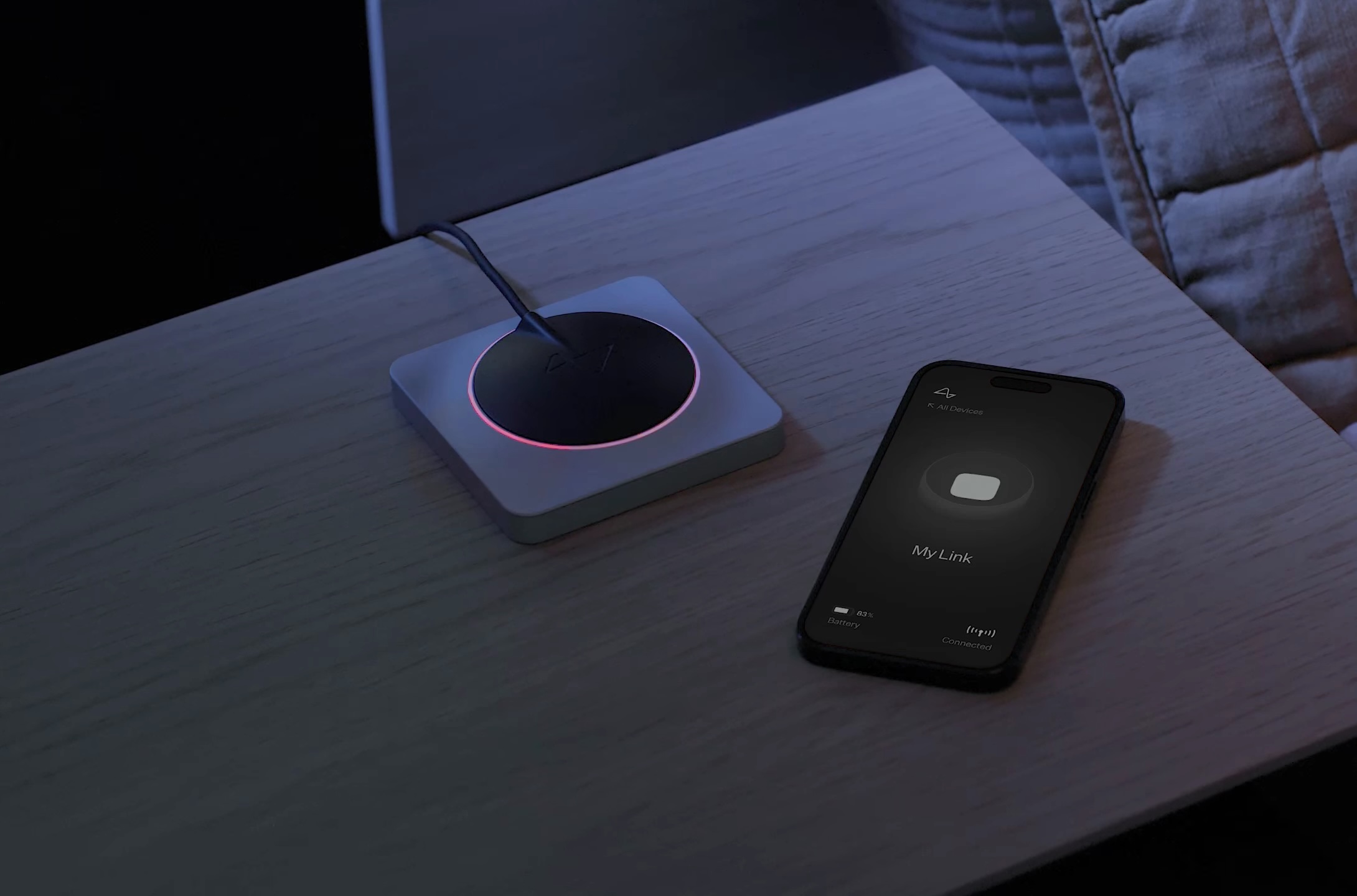
Neuralink, founded by Elon Musk, is helping spark a surge of brain-computer interface (BCI) development in China, where startups are moving quickly into human trials with strong state backing.
One of the most prominent is NeuroXess, which launched in 2021 and is already testing implants in patients.
Neuralink’s clinical work and public demonstrations have drawn worldwide attention to invasive brain implants that allow patients to control digital devices using their minds. The company is currently running a global clinical trial and is also busy preparing for its next product, Blindsight, which would restore vision to people with visual impairments.
Neuralink’s visibility has helped accelerate similar efforts in China. Beijing last year classified brain-computer interfaces as a strategic sector and issued a roadmap calling for two or three globally competitive companies by 2030, as per the Financial Times. Since February last year, at least 10 clinical trials for invasive brain chips have launched in the country.
NeuroXess recently reported that a paralyzed patient was able to control a computer cursor within five days of implantation. Founder Tiger Tao credited government support for helping shorten the path from research to trials.
Investment activity has followed the policy push. Industry data show dozens of financing rounds for Chinese BCI startups over the past year, reflecting rising capital interest in the field. Ultimately, while Neuralink remains one of the most closely watched players globally, its momentum has clearly energized competitors abroad.
News
Tesla Supercharger vandalized with frozen cables and anti-Musk imagery amid Sweden union dispute
The incident comes amid Tesla’s ongoing labor dispute with IF Metall.
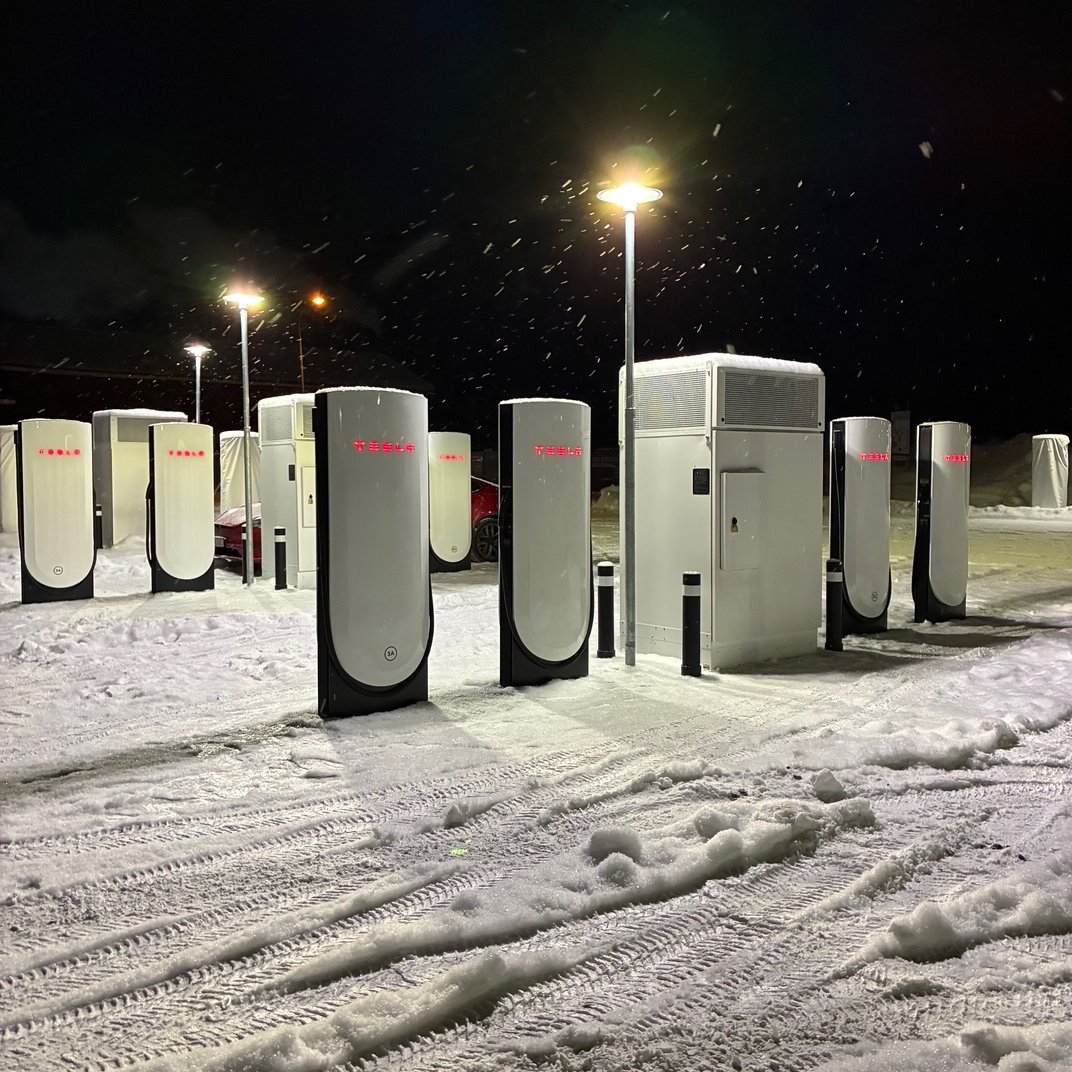
Tesla’s Supercharger site in Vansbro, Sweden, was vandalized during peak winter travel weeks. Images shared to local media showed frozen charging cables and a banner reading “Go home Elon,” which was complete with a graphic of Musk’s controversial gesture.
The incident comes amid Tesla’s ongoing labor dispute with IF Metall, which has been striking against the company for more than two years over collective bargaining agreements, as noted in a report from Expressen.
Local resident Stefan Jakobsson said he arrived at the Vansbro charging station to find a board criticizing Elon Musk and accusing Tesla of strikebreaking. He also found the charging cables frozen after someone seemingly poured water over them.
“I laughed a little and it was pretty nicely drawn. But it was a bit unnecessary,” Jakobsson said. “They don’t have to do vandalism because they’re angry at Elon Musk.”
The site has seen heavy traffic during Sweden’s winter sports holidays, with travelers heading toward Sälen and other mountain destinations. Jakobsson said long lines formed last weekend, with roughly 50 Teslas and other EVs waiting to charge.
Tesla Superchargers in Sweden are typically open to other electric vehicle brands, making them a reliable option for all EV owners.
Tesla installed a generator at the location after sympathy strikes from other unions disrupted power supply to some stations. The generator itself was reportedly not working on the morning of the incident, though it is unclear whether that was connected to the protest.
The dispute between Tesla and IF Metall centers on the company’s refusal to sign a collective agreement covering Swedish workers. The strike has drawn support from other unions, including Seko, which has taken steps affecting electricity supply to certain Tesla facilities. Tesla Sweden, for its part, has insisted that its workers are already fairly compensated and it does not need a collective agreement,
Jesper Pettersson, press spokesperson for IF Metall, criticized Tesla’s use of generators to keep charging stations running. Still, IF Metall emphasized that it strongly distances itself from the vandalism incident at the Vansbro Supercharger.
“We think it is remarkable that instead of taking the easy route and signing a collective agreement for our members, they are choosing to use every possible means to get around the strike,” Pettersson said.
